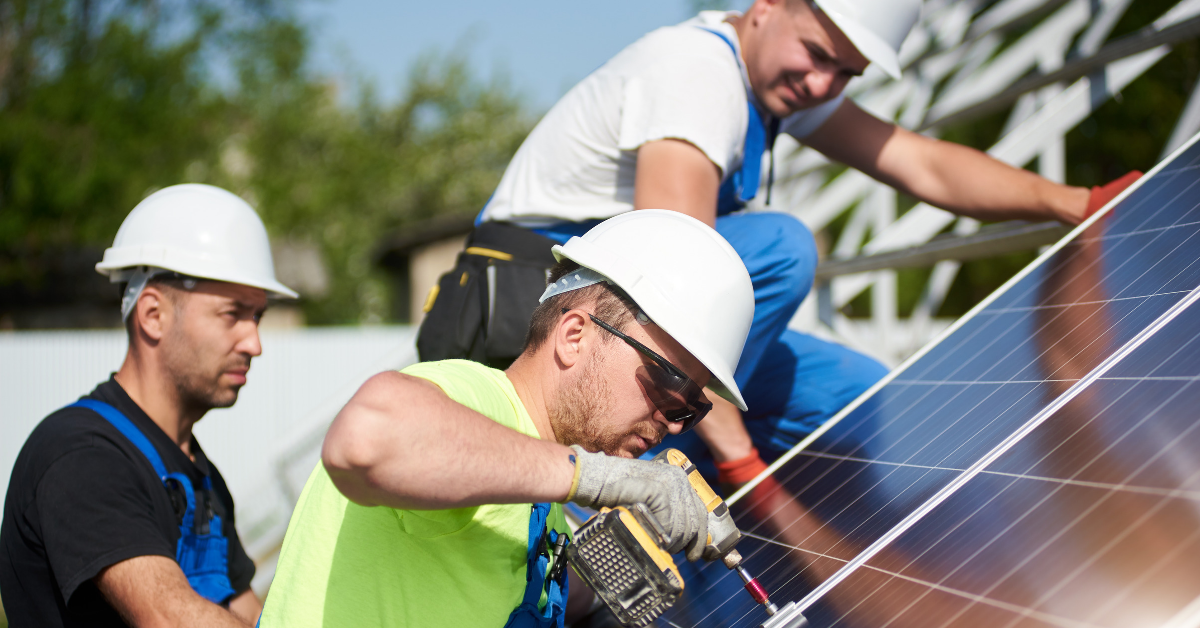
On July 10th, Catholic Climate Covenant announced that it was partnering with the Catholic Charities of the Archdiocese of Washington to build the largest solar ground array to-date in the District of Columbia.
As a member of the Catholic Climate Covenant, and as people of faith concerned about the damage being done by of fossil fuel pollution, we applauded this hopeful project. We pray that even more clean energy projects like this one will get underway, because, as Pope Francis recently stated, our planet is in a “climate emergency.”
In its 2013 report, the UN International Panel on Climate Change (or, UNIPCC) concluded that the evidence for climate change is “unequivocal” and that human activity, primarily the CO2 emissions that come from burning fossil fuels, is “extremely likely” (95-100%) the causes.
Pope Francis has also recognized the grave danger our planet is in. In Laudato Si’, he wrote that “there is an urgent need to develop policies so that, in the next few years, the emission of carbon dioxide and other highly polluting gases can be drastically reduced” (LS, 26).
In a 2018 meeting with energy executives from around the world, the Pope stated the problem even more bluntly: “civilization requires energy, but energy use must not destroy civilization.”
The world’s annual carbon emissions need to drop by nearly half by 2030 and to net-zero by 2050 in order to keep global warming at 1.5 degrees Celsius compared to preindustrial levels. This will help us avoid the worst effects of climate change. Catholic Climate Covenant’s clean energy project with DC Catholic Charities is a positive step in this direction.
But, despite current efforts to scale up the use of clean energy, the 2018 report from the UNIPCC projects that annual carbon emissions are on track to stay the same or even increase, not decrease, by 2030!
This is a dangerous trend and we don’t have any time to waste. We need urgent and ambitious action.
Recently, under President Trump's administration, 13 federal agencies articulated the urgency of climate action and detailed the current and near-term harms of climate change to the United States in the National Climate Assessment. Climate change affects everyone in the form of more severe weather events (like Super storm Sandy of Typhoon Haiyan), as well as worsening droughts, floods, heat waves, and infectious diseases.
You can learn more about the effects of climate change on your local region here.
Evidence shows, however, that climate change disproportionately impacts vulnerable communities, like children, the elderly, people of color, and people living in poverty. Rising global temperatures will make it more difficult for these communities in the United States and around the world to access the resources they need and live in safety and security.
Clearly, the insatiable energy demands of our economy are tearing apart the web of life, with disastrous consequences for everyone. That’s why we need a 100% clean energy economy urgently.
As the world’s largest historic emitter of carbon pollution, the United States has a responsibility to lead this transition and assist other countries as they do the same. Our challenge is to think creatively about how we can replace fossil fuels with clean energies, and to do so justly.
As people of faith, we value stewardship and justice. We recognize that God’s creation is sacred and that we have a responsibility to steward the gifts of creation while protecting our most vulnerable neighbors. As the 2020 election draws near, we need to ensure that our current elected officials and candidates running for office understand that our communities are already suffering the impacts of climate change and that they must comprehensively address our country’s contributions to climate change.
In the Book of Jeremiah, the prophet reminds his country that “God brought you into a fertile land to eat its fruit and rich produce. But you came and defiled God’s land and made God’s inheritance detestable” (Jer 2:7). This reprimand is even more applicable to our country today than it was over 2,000 years ago.
As Pope Francis acknowledges, “the ecological crisis also a summons to profound interior conversion” (LS, 217). It is time to take our responsibility as environmental caretakers seriously, to help heal the world that we’ve damaged so that it can sustainably support all forms of life for generations to come.
Copyright © 2025 Columban Center for Advocacy and Outreach, Washington, D.C.